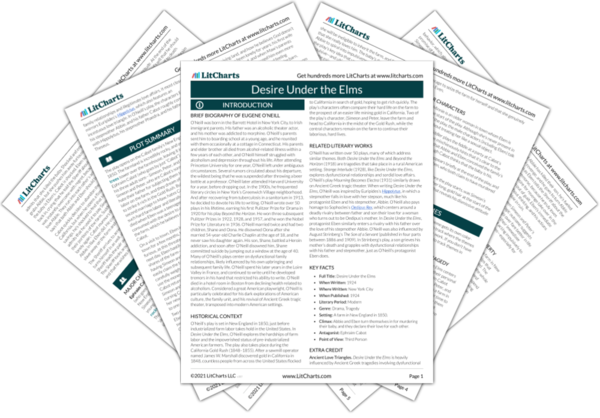Abbie and Eben’s fates present a stark contrast to Simeon and Peter’s fates. Simeon and Peter were able to think about their options and carefully plan an exit to a happier life, which also freed them from getting roped into the rest of the events of the play. Abbie and Eben, meanwhile, let their desires control them, and they acted hastily in the heat of the moment, causing their lives to implode.
